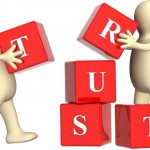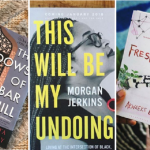Reading is an exercise in compassion, one that helps you notice the futility of division and appreciate diversity as a blessing. However, did you know that readers aren’t the kindest to their own folks?
Imagine this: You are walking in your natural habitat, also called a bookstore. You pass the fiction corner and the non-fiction aisle to arrive at the self-help section. Believe me when I say that you are ought to feel on your spine the breath of a million self-righteous readers who read more “serious” things than you; a gale that will push you out of that space to never return again.
Suggested read: Love Yourself Truly, With A Li’l Help From These Books!
I am no saint either. I have caught myself rearranging my bookshelves every time I was having a fellow reader over: pushing my Tolstoys over my Carnegies, hiding my Tony Robbins with a thicker Guha. Which brings me to this: Why are we so ashamed of trying to better ourselves? Even romance gets more respect than self-exploration! It is strange how everyone adores the idea of self-love while not wanting to be seen working on self-discovery, which, mind you, is the only concrete way to love yourself.
May be one of the reasons why people are so embarrassed by these books is because of a few bad apples that have ruined the reputation of the entire sack. I remember reading one, a couple of years ago. The name has eluded me, but its ghastly content is not going anywhere anytime soon. Among so many of its ‘brilliant’ tips were some of these – always be the one to end the phone call, do not date on second Saturdays, stop trusting people whose favorite color is green. You get the drift, right?
But doesn’t every genre have good and bad books? Then why is this category singled out and ridiculed? In fact, why not think about it this way: May be because self-help books are scoffed at, good writers are avoiding the genre altogether, and hence, inconsequential books are being written. Why would an accomplished person/writer delve into a field whose books end up in shelves that are cursed or books that can never hope to win a prestigious literary prize?
This wasn’t true in the past though. Emotional intelligence wasn’t considered something that should be renounced. You must be familiar with the Greek word, ‘eudaimonia’ (eudemonia in English). In case you aren’t, it is a principal concept in Aristotelian ethics and political philosophy. The closest English words for it would be ‘happiness’ or ‘welfare’. Eudemonia, based on a tradition older than Aristotle, is the highest good a human being can hope to attain. It is regarded as the aim of practical philosophy. The association between virtue of character, ēthikē aretē, and eudemonia was the chief concern of ancient ethics. Doesn’t that make all the books written on how to achieve eudemonia, essentially self-help books? Who else has written on eudemonia, you ask? Socrates has given his views in ‘Apology’, where he chastises the Athenians for caring more for riches and honor than the state of their souls. Plato, Socrates’ student for 40 years, took it forward in ‘Phaedo’ and ‘Republic’. In the latter, he argues that a man whose soul is without virtues, leads a life of chaos, and because of this, even if he has all the riches of the world, he does not attain eudemonia.
The list is long. The Stoics (Seneca, Epicetus, Marcus Aurelius) have spoken about it, and so have the Utilitarians (Jeremy Bentham, James Mill, J.S. Mill) who followed. But this was way in the past. What about the modern thinkers? Surprisingly, there is a plethora of work that you will identify as belonging to this much defamed genre, once you view culture as a medium toward emotional intelligence. Siddhartha by Hermann Hesse (“Was Atman then not within him? Was not then the source within his own heart? One must find the source within one’s own Self, one must possess it. Everything else was seeking – a detour, error.”), The Prince by Machiavelli (“Men should be either treated generously or destroyed, because they take revenge for slight injuries – for heavy ones they cannot.”), Meditations by Marcus Aurelius (“If you are distressed by anything external, the pain is not due to the thing itself, but to your estimate of it; and this you have the power to revoke at any moment.”), The Fountainhead by Ayn Rand (“But you see, I have, let’s say, sixty years to live. Most of that time will be spent working. I’ve chosen the work I want to do. If I find no joy in it, then I’m only condemning myself to sixty years of torture. And I can find the joy only if I do my work in the best way possible to me.), Outliers by Malcolm Gladwell (“[T]he values of the world we inhabit and the people we surround ourselves with have a profound effect on who we are.”) to name a few.
Suggested read: The Most Inspiring Self-Help Books You Need To Make Your New Year BETTER
Any book that attempts to guide you toward your authentic self is a self-help book. It is high-time we recognize that, because it is now, more than ever, that we need to focus on emotional intelligence as much as (or even more than) intellectual knowledge. The next time you are at a bookstore, feel free to pick Tolstoy’s, ‘War and Peace’, a book that teaches compassion and patience, from the Literature section and drop it at the self-help corner!
Featured image source: Google, copyright-free image under Creative Commons License











